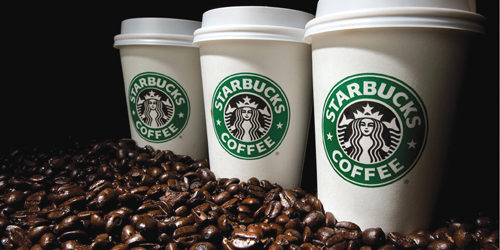
By John Burroughes
Managing Director,
Uniglobe Preferred Travel
We all read the media headlines concerning huge profits being made and massive multi-million pound bonuses being paid through dubious tax havens. By contrast, most of us fly at some time or other, many of us more than we would like for business, so let’s take a look at air travel as a global company.
Let’s not beat around the bush. Airline travel is sexy, most of us love to get on an aircraft, most, if not all, would love to turn left or go up those stairs into the upper echelons of this beautiful, slimline beast, where only the chosen few get to go, or get on the 1st or 2nd door of an A380 as opposed to the 3rd door!
The reason we love it is it’s the means of catapulting us away from what are sometimes our dreary, mundane lives. As you exit the door you can be on the other side of the world looking at iconic landmarks that you have never seen before, or at beautiful sun-kissed beaches full of hunky, healthy individuals that we wished we looked like. Of course, if it’s on business and you’ve got the short straw, it undoubtedly will be somewhere slightly less salubrious.
However, if I told you that in 2015, for the very first time in the history of the global airline industry it made a return on invested capital, I am sure you would be shocked. I cannot think of another industry where this would be tolerated. We all know from our own business experiences that we would long ago have been closed down. But this is true!
Moreover, the aviation industry is in raptures over the projections for 2016 when the current return on invested capital (9.8%) will exceed the cost of capital (estimated to be 6.8%). This is the minimum expectation level for investors as the airline industry is beginning to generate profits that would be expected in any normal industry.
But this is where I need to strike a note of caution. If we consider the history of the aviation industry and the fact that it has never globally made a profit until 2015, we have to ask what changed? In a nutshell, it was 15 years ago when 9/11 happened. The airline industry has proved remarkably resilient through its short history, however, this event was a body blow and everybody could feel the shock waves. Things had to change, and quickly; wise heads immediately started to cut capacity whilst at the same time investing in new, expensive but very necessary safety measures.
It was the cutting of capacity that caught the attention of the business analysts and bean counters. By cutting capacity, when people did start to fly it was difficult to get on a plane as there were fewer seats. This in turn pushed up the air ticket price (cleverly, now being controlled with new algorithms) and this increased their load factors and yield per seat considerably.
In my view this was the turning point of the aviation industry from loss into profit. Previously the focus was on flatbed versus a put-you-up-seat, plonk versus fine wines and champagne, red uniforms with high heels (optional for males) versus the more traditional classic style of British Airways, the latest culinary cuisine presided over by the most prestigious TV chef of the moment or a snack box with some marginally edible contents.
Now the talk was of load factors, yields per seat, the advantages of overbooking a flight, the weight of luggage, both in the hold and the cabin, a focus on cargo capacity and the thought of ‘what else can we sell to our clients?’
Nowadays you have to pay for the privilege of being able to book a seat so you can travel together with your partner, extra legroom seats, exit aisle seats even more (this is where in case of emergency you take the place of the crew and open the aircraft door - good news that you’re first out), extra luggage etc. It may astonish you to know that on some scheduled airlines, even if you have booked and paid for a business-class flatbed seat for you and your partner, if you do not hold the appropriate coloured airline loyalty card, you can still be charged a total of £220 extra to book the seats of your choice on a return flight.
The reduction in oil prices has clearly also been a factor in current profit projections. The average price of a barrel of Brent crude this year is $45 a barrel, the overall fuel costs of global airlines this year is expected to be 19.7% of the industry’s expenses, down from my recent high of 33.1% in 2012/13. Again, a note of caution: the markets predict over the coming years that oil prices will once again move upwards, so do not expect the airlines to absorb this cost as they have done before. Undoubtedly, ticket prices will rise broadly in line with the increased cost of fuel.
As the saying goes, there is strength in numbers, airlines are merging and forming ever bigger and stronger alliances, they are working together in a much more open fashion and they have been actively lobbying to get changes to legislation to allow them to share pricing information on more transparent platforms.
You might well feel much of the above is not good news, but I would counter by saying it is exactly that! The airline industry that I enjoy so much working within is coming-of-age, but it is a business and must be treated as such. Profit must not be a dirty word.
We need our airline industry to make a good profit so that it can reinvest in the products and services in which it has continually invested since its inception. Having already talked about the price of fuel, the airline industry is expected this year to take delivery of 1,900 new aircraft, about half of which are projected to replace less fuel-efficient aircraft.
So back to coffee. On average, airlines will make $10.42 for each passenger carried. That’s about enough to buy four double espressos in Starbucks. Looked at from a different angle, Starbucks will earn about $11 for every $100 in sales while airlines make $5.60. Setting taxation issues aside, we don’t begrudge Starbucks their profitability, and nor should we begrudge the airline industry their profits. If you need time to contemplate that statement I recommend you stand by any runway and watch the current marvels of the skies, the Airbus A380 or the Boeing Dreamliner, take off or land. One can only marvel at the sheer technical genius contained within this industry.
So let’s keep enjoying flying and help push the airline industry’s profits way above a grande latte with an extra shot!






